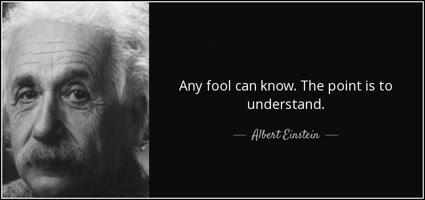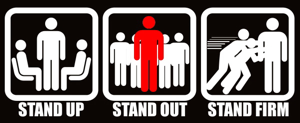AA gun at Corregidor
"Memorial Day, 2024"
by John Wilder
“If words cannot repay the debt we owe these men, surely with our actions we must strive to keep faith with them and with the vision that led them to battle and to final sacrifice.”
- Ronald Reagan
This was originally written in 2023. It says what I want to say in 2024.
"Last year when The Mrs. was putting flowers on the graves of her relatives, my job was to drive the car while she located the locations. It was her first year when she actively did that for all of her relatives. Her mother had done that previously, but since my mother-in-law passed, that duty of remembering the family had fallen to The Mrs.
I saw one gravesite in particular, and I decided to research it. It stuck out, because it was the grave of a United States Army officer who died in May of 1942. I was curious. Thankfully, there was at least some information about this officer online. He had been born elsewhere, but went to high school here in Modern Mayberry. His particulars weren’t all that unusual for a young man in the 1930s: he loved baseball, he graduated, went to college, got a degree, got a job, and got married.
While in college, he was in ROTC, so he graduated as a 1st Lieutenant in the Army Reserve. I think even in the mid-1930s people could see the writing on the wall that there was the real possibility of war, so I imagine a core group of people with officer training was just what they wanted on the shelf.
His life was, I imagine, the same as millions of lives in that quasi-Depressionary era. He and his wife welcomed a baby into the world 1940, but by early 1941 the young officer had been drafted back into the Army. He was sent, half a world away, to Manila. I’m sure he told his wife as they shipped him off that his job, thankfully, was to be in the rear with the gear. It would be other people that would really be in the crosshairs of the enemy. Besides, it would be crazy of the Japanese to make a strike at Manilla. That would mean war!
He was at the airfield in Manilla on December 8, 1941, when the Japanese attacked. The planes he was supposed to serve hadn’t arrived. The troops that were supposed to protect the airfield hadn’t arrived. Yet his Company had. On Christmas Eve, 1941, his group was given the task of demolishing the airstrip and leaving nothing the Japanese could make use of. This is generally not a good sign.
Then, every man in his Company was given a rifle and told they were now members of the Provisional Air Corps Infantry. This is an even worse sign.
Our young officer and his troops were then ordered to join the defense of Bataan. Bataan is a peninsula that forms the northern part of the entrance to Manila Harbor. To really control Manila and use it as a base, you have to control Bataan. The original allied plans had called for falling back to Bataan and holding out, but MacArthur had thought that defeatist, and planned on a more active defense.
When the Japanese attacked, there weren’t enough supplies for MacArthur’s plan, so they fell back to Bataan, where there also weren’t enough supplies for the defense of Bataan because they stopped shipping those because MacArthur had changed his mind.
The Japanese general who would later be fired because it took him too long to defeat the combined American-Filipino army at Bataan also noted that the Americans had numerical superiority, and in his opinion, could have retaken Manila. I’m not sure that going through this exercise made me think more highly of MacArthur...
If you’re not familiar with the Battle of Bataan, it took over three months, and ended up the largest U.S. Army surrender since the Civil War. Over 76,000 troops were captured. To my knowledge, there is no written record of the Provisional Air Corps Infantry during the Battle of Bataan, though there is a record that on March 4, the 1st Lieutenant was promoted to Captain, just before MacArthur high-tailed it out of the Philippines to safety in Australia.
The troops at Bataan were officially surrendered on April 9, 1942. But in this case, the Provisional Air Corps Infantry was not part of the surrender, and was ordered to the island of Corregidor. Over 20% of the men of the Company had already been lost.
Corregidor was an island that resembled a battleship – at the time of the Japanese invasion, it was bristling with coastal defense guns, mortars, anti-aircraft guns, and minefields. Now that Bataan was taken, the last thing required to control Manilla Bay was that the island forts fall. Corregidor was, by far, the biggest of these.
The Navy ran the guns, but the defense of the beach was the responsibility of the 4th Marine Regiment, along with a ragtag group of other orphan units, including at least one Company from the Provisional Air Corps Infantry and a young Captain from Modern Mayberry, who were sent into the foxholes with the Marines to guard the beaches since they had combat experience from Bataan.
Sometime in early May, the young Captain was in one of those foxholes with several Marines, and a Japanese artillery shell hit, killing them all. Even the very date this happened isn’t clear, and his family wouldn’t even hear of his death until a year later.
I don’t know what this young officer from Modern Mayberry did during his time in battle on Bataan and Corregidor – it’s nearly certain that no one alive does. His wife later remarried, half a decade after finding out her husband was dead. His son still bears the name of a father he never knew, if he’s still living.
There is a white cross in a field in Manilla, surrounded by green grass that is regularly cut, where it is said, his body lies. The marker here in Modern Mayberry is only for remembrance, to let people like me know he lived.
And, I saw it, and learned his story, and every year around this time, I tell a few people from Modern Mayberry who haven’t heard about him. The Mrs. plans to put some flowers out for him, but even if she doesn’t, I’ll spend some time thinking about him."
























.jpeg)